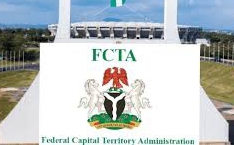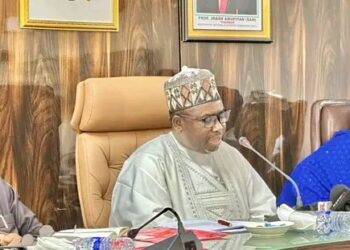The Federal Capital Territory Administration (FCTA) has issued a warning regarding the possible revocation of Certificates of Occupancy for land parcels owned by notable individuals and corporate entities in Abuja.
In a notification released on Friday, the FCTA indicated that this notice pertains specifically to landowners in the Maitama district, who are given a two-week deadline to settle any outstanding payments related to their Certificates of Occupancy (C of O), failing which they may forfeit their property rights.
The FCTA attributed this action to the need for infrastructural development within the district.
The two-week notice, titled “Demand Notice for Payment of Right of Occupancy Bills for Issuance of Certificates of Occupancy on All Lands Allocated at Maitama II District, Cadastral Zone, A10, Abuja,” has been dispatched to a total of 3,273 allottees.
The communication stated, “The Federal Capital Territory Administration, through the Federal Capital Development Authority, is undertaking infrastructural projects in Maitama II (A10) District. All allottees who have not fulfilled their payment obligations for the Certificate of Occupancy are hereby urged to make full payment within two (2) weeks from the date of this publication.”
Furthermore, the notice warned that failure to settle all outstanding land bills, rents, fees, and charges within the designated timeframe would result in the revocation of the Rights of Occupancy (R-of-O) for the affected plots by the honorable minister of the FCT, along with the potential reallocation of the lands.
Among the landowners affected by this notice are Yusuf Buhari and Zahra Buhari, children of former President Muhammadu Buhari; Femi Gbajabiamila, Chief of Staff to President Bola Tinubu; Speaker of the House of Representatives, Abbas Tajudeen; Secretary to the Government of the Federation, George Akume; Minister of Interior, Olubunmi Tunji-Ojo; former Senate President, Bukola Saraki; former Speaker of the House of Representatives, Yakubu Dogara; and former Deputy Senate President, Ovie Omo-Agege.
The list also includes the Minister of Sports, John Eno; Minister of Agriculture and Food Security, Abubakar Kyari; and former Minister of Labour and Employment, Chris Ngige.
Former governors mentioned are Theodore Orji, Rochas Okorocha, Ibikunle Amosun, Tanko Al-Makura, Joshua Dariye, Gabriel Suswam, Ibrahim Shekarau, Okezie Ikpeazu, Jonah Jang, Seriake Dickson, Adamu Muazu, and Bukar Abba Ibrahim.
Additionally, serving and former lawmakers such as Dino Melaye, Kabiru Marafa, Stella Oduah, Danjuma Goje, Ben Bruce, David Umaru, Saliu Mustapha, Biodun Olujimi, Andy Uba, Sunday Karimi, Olumide Osoba, Nicholas Ossai, Emmanuel Bwacha, Osita Izunaso, and House Leader Julius Ihonvbere are included in the notification, alongside Wole Oke and Kabiru Gaya.
Others on the list are Beni Lar, Leo Ogor, Darlington Nwokocha, Peter Nwaoboshi, Oker Jev, Lynda Ikpeazu, Khadijat Ibrahim, Obinna Chidoka, Philip Aduda, Smart Adeyemi, Chukwuka Utazi, Timothy Golu, Edward Pwajok, Ali Ndume, Ben Obi, Binta Garba, and Teslim Folarin.
The notification also names former National Chairman of the APC, Adamu Abdullahi, and third Republic Senate President, Ameh Ebute.











